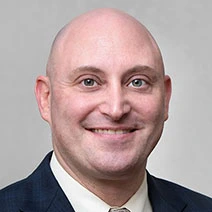Pfizer penalized $2.3 billion for illegal marketing schemes
Federal prosecutors hit Pfizer Inc. with a record-breaking $2.3 billion in fines Wednesday and called the world’s largest drugmaker a repeating corporate cheat for illegal prescription drug promotions that plied doctors with free golf, massages and resort junkets.
Justice Department officials said the overall settlement is the largest ever paid by a drug company for alleged violations of federal drug rules, and the $1.2 billion criminal fine is the largest ever in any U.S. criminal case. The total includes $1 billion in civil penalties and a $100 million criminal forfeiture.
A portion of the $1 billion civil penalty will be distributed to 49 states and the District of Columbia, according to agreements with each state’s Medicaid program.
Texas’ Medicaid program will get $55 million, according to Texas Attorney General Greg Abbott.
Authorities called Pfizer a repeat offender, noting it is the company’s fourth settlement of government charges in the past decade.
The allegations surround the marketing of 13 different drugs, including big sellers such as Viagra, Zoloft and Lipitor.
As part of its illegal marketing, Pfizer invited doctors to consultant meetings at resort locations, paying their expenses and providing perks, prosecutors said.
“They were entertained with golf, massages and other activities,” said Mike Loucks, the U.S. attorney in Massachusetts.
Loucks said that even as Pfizer was negotiating deals on past misconduct, they were continuing to violate the same laws with other drugs.
To prevent backsliding, Pfizer’s conduct will be specially monitored by the Health and Human Service Department inspector general for five years.
Associate Attorney General Thomas Perrelli said the settlement illustrates ways the Justice Department “can, help the American public at a time when budgets are tight and health care costs are rising.”
Kathleen Sebelius, secretary of Department of Health and Human Services, hailed the settlement. “Health care is too important to let a single dollar go to waste,” she said.
Officials said the U.S. industry has paid out more, than $11 billion in such settlements over the past decade.
The government said the company promoted four prescription drugs, including the pain killer Bextra, as treatments for medical conditions different from those the drugs had been approved for by federal regulators.
Authorities said Pfizer’s sales staff created phony doctor requests for medical information so that they could send unsolicited information to doctors about unapproved uses and dosages.
Use of drugs for so-called “off-label” medical Conditions is not uncommon, but drug manufacturers are prohibited from marketing drugs for uses that haven’t been approved by the Food and Drug Administration.
Authorities said Pfizer’s junkets and other company-paid perks were designed to promote Bextra and other drugs to doctors for unapproved uses and dosages, backed by false and misleading claims about safety and effectiveness.
Bextra, for instance, was approved for arthritis, but Pfizer promoted it for acute pain and surgical pain, and in dosages above the approved maximum. In 2005, Bextra was pulled from the U.S. market amid evidence it raised the risk of heart attack, stroke and death.
Wednesday’s settlement covered Pfizer’s promotions of Bextra, nerve pain and epilepsy treatment Lyrica, schizophrenia medicine Geodon, antibiotic Zyvox and nine other drugs: Aricept, Celebrex, Lipitor, Norvasc, Relpax, Viagra, Zithromax, Zoloft and Zyrtec.


